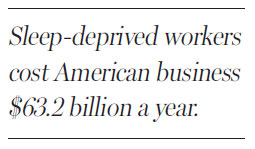Doing more may mean doing less
Updated: 2013-03-17 08:36
(The New York Times)
|
|||||||

Some 2,500 years ago, the Chinese sage Lao Tzu wrote, "He who clings to his work will create nothing that endures. If you want to accord with the Tao, just do your job, then let go."
But that is easier said than done. In ancient China, they didn't have the Internet and instantaneous stock market updates.
Consider the cautionary tale of Erin Callan, who was the chief financial officer at Lehman Brothers when the firm collapsed in 2008. Ms. Callan wrote in The Times about how her relentless drive and endless hours spent at her job left her with practically no personal life, and a marriage that would soon fail.
"Inevitably, when I left my job, it devastated me," she wrote. "I couldn't just rally and move on. I did not know how to value who I was versus what I did. What I did was who I was."
Ms. Callan and many like her may take comfort, if not in ancient wisdom, then in recent findings that indicate the most efficient way to get things done may be to spend more time doing less.

"A new and growing body of multidisciplinary research shows that strategic renewal- including daytime workouts, short afternoon naps, longer sleep hours, more time away from the office and longer, more frequent vacations- boosts productivity, job performance and, of course, health," Tony Schwartz, a time management consultant, wrote in The Times.
It seems counterintuitive. Empires were built on "more is more," right? Isn't "less is more" a crutch of overzealous Minimalist architects and lazy people?
Mr. Schwartz and many others would disagree. He notes that too much work, which often results in too little sleep, hurts not just employees but also their companies. One recent study at Harvard University figured that sleep-deprived workers cost American businesses $63.2 billion a year in lost productivity. Another found that naps increased work productivity, too. Still another, from Florida State University, found that the super-performers among us- elite actors, athletes, musicians- tend to work best in 90-minute intervals, rarely more than three of them a day, with regular breaks. The nonstop 12-hour workday is not a reasonable option.
High-level athletes, whose bodies need ample rest periods to recover from workouts, have long known this. But it doesn't just apply to the Usain Bolts and Lionel Messis among us. A study involving three groups of women ages 60 to 74, who exercised two, four and six times a week respectively, found that women in all three groups reaped nearly the same physical benefits, but those who exercised six times a week experienced more fatigue and were less active overall, The Times reported.
While these all sound like lessons of the modern age, warnings against such excess have been around for a while.
Ms. Callan, it seems, has apparently seen the Taoist light: "I didn't have to be on my BlackBerry from my first moment in the morning to my last moment at night. I didn't have to eat the majority of my meals at my desk. I didn't have to fly overnight to a meeting in Europe on my birthday. I now believe that I could have made it to a similar place with at least some better version of a personal life. Not without sacrifice- I don't think I could have 'had it all'- but with somewhat more harmony."
Peter Catapano
The New York Times
(China Daily 03/17/2013 page9)